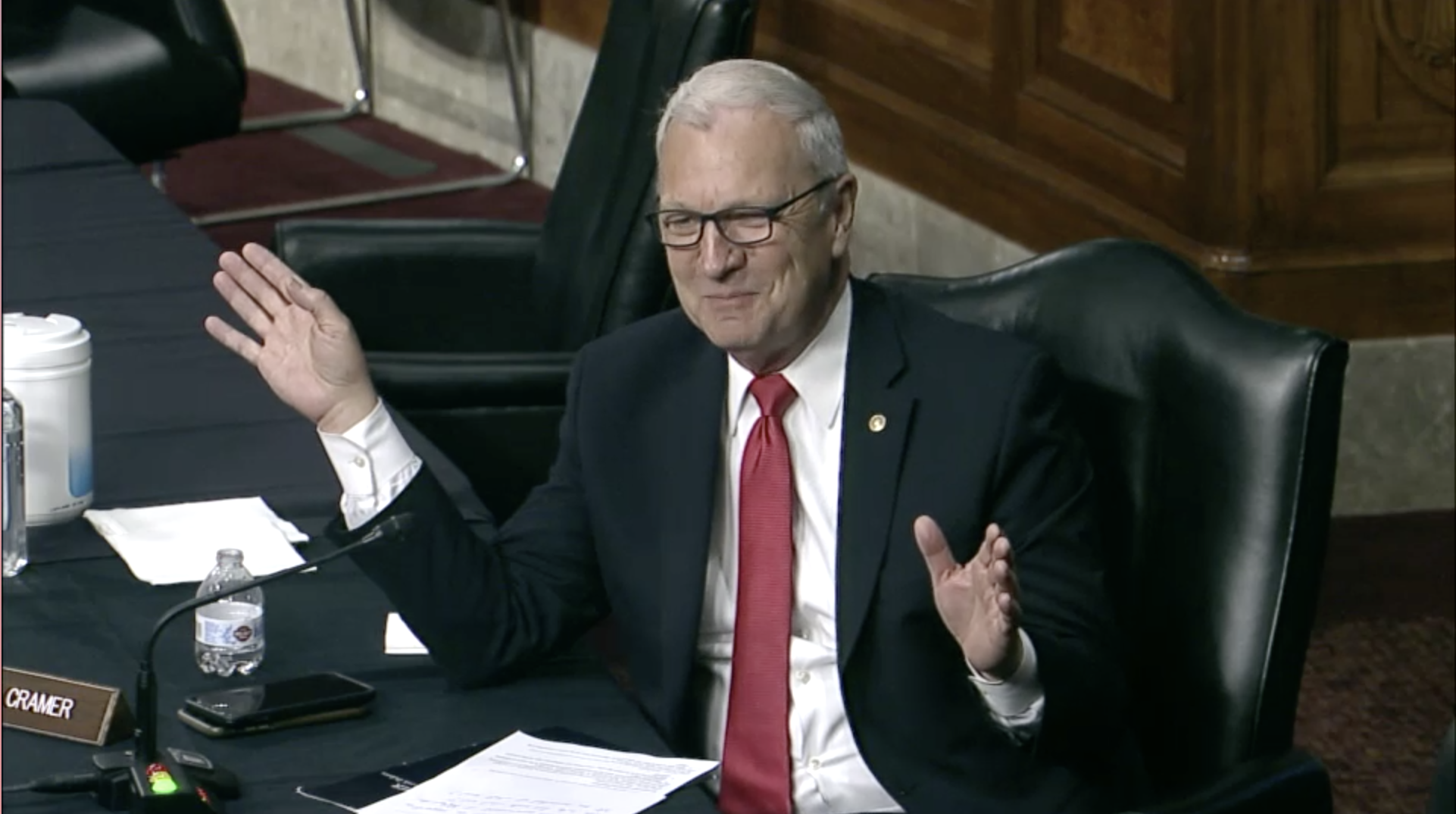***Click here to download video. Click here for audio.***
WASHINGTON – At a Senate Armed Services (SASC) hearing, U.S. Senator Kevin Cramer (R-ND) questioned David F. Helvey, Acting Assistant Secretary of Defense for Indo-Pacific Security Affairs, and Brigadier General Matthew Trollinger, U.S. Marine Corps Deputy Director of Politico-Military Affairs Middle East and Joint Staff of Indo-Pacific Security Affairs, on the military’s plans for supporting the government in Afghanistan should the country fall into a civil war.
“Have we committed to completely supporting the current government in Afghanistan should it fall into an all-out civil war? If so, what would that commitment look like?” asked Senator Cramer.
“We have committed to completely supporting the Afghan government,” said Mr. Helvey. “We have a bilateral security agreement with the Afghan government, in which we indicate we will continue to seek funding to provide support to them to support the ANDSF.”
Senator Cramer then questioned both Mr. Helvey and Brigadier General Trollinger on how Intelligence, Surveillance, and Reconnaissance (ISR) capabilities can help reduce threats of terrorism around the globe. North Dakota is home to ISR platforms such as the RQ-4 Global Hawk in Grand Forks and the MQ-9 Reaper in Fargo.
“What type of unmanned or space-born capabilities do we need to maintain or even enhance to minimize the possibility of global terror threats?” asked Senator Cramer. “Is there more we can be doing to shore up this new way of providing some security?”
“There’s this broader global framework which includes broader technical means, but the types of capabilities that may not be resident within the region but that we can flow into the region on an as-need basis,” said Mr. Helvey.
“The capability we currently have and use to achieve our objectives we want to continue to utilize and make the technological advances that we’re able to to better enable us,” responded Brigadier General Trollinger.
